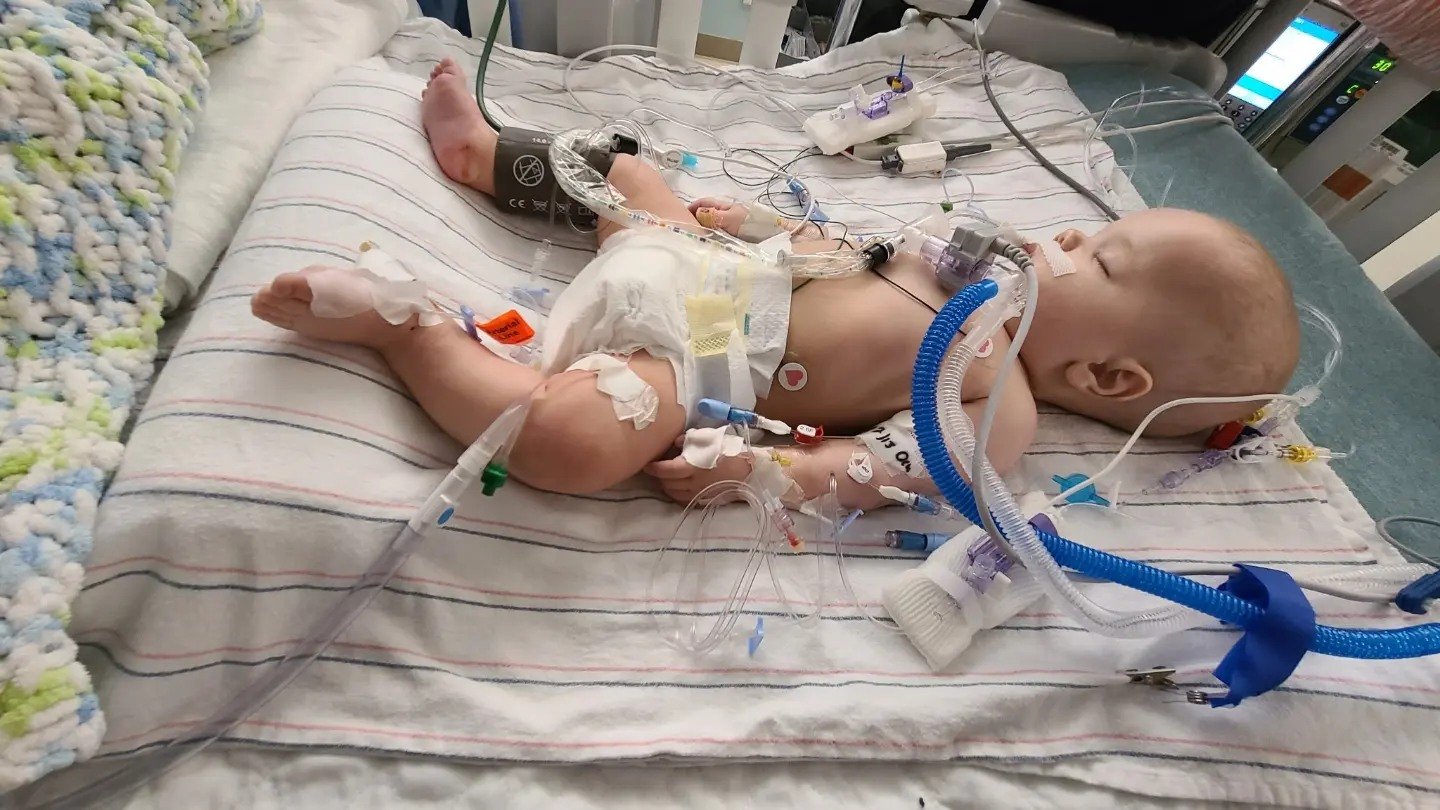Who is Onyx the Rugged?
Onyx Michael Redman was a remarkable little boy who brought joy and inspiration to everyone who knew him. Born on September 17, 2020, in Portland, Maine, Onyx had a contagious smile and striking ice-blue eyes that captured the hearts of all who met him. Despite his young age, Onyx was an old soul with a gentle spirit. He was known for his relaxed, go-with-the-flow attitude, much like the sloths he loved so dearly. His friends and family lovingly called him "Onyx The Rugged" for his rough and strong character, a testament to the strength and resilience he showed throughout his life.
Onyx was diagnosed with Atypical Teratoid Rhabdoid Tumor (ATRT) at just four months old, a rare and aggressive form of brain cancer. Despite the many treatments and surgeries he endured, Onyx remained a beacon of light and love, teaching those around him the true meaning of courage and perseverance.
Onyx passed away on October 10, 2022, in Kittery, Maine, surrounded by his loving parents, Morgan and Kris Redman. Though his time with us was short, Onyx left an indelible mark on the hearts of everyone who knew him. His legacy lives on through the work of Onyx the Rugged, an organization dedicated to supporting families battling childhood cancer and funding research to find a cure.
The Redman family, including Onyx’s parents, Morgan and Kris, and his older brother, Jade, are devoted to honoring their son’s memory by helping other families facing similar challenges. Their strength, love, and commitment to making a difference inspire all who encounter their story.
What is ATRT?
Atypical Teratoid Rhabdoid Tumor (ATRT) is a rare and aggressive form of cancer that primarily affects the central nervous system, including the brain and spinal cord. ATRT is most commonly diagnosed in children under the age of 3, but it can occur at any age. The rarity and rapid progression of this disease make it one of the most challenging pediatric cancers to treat.
Causes and Risk Factors
ATRT is associated with genetic mutations, particularly in the SMARCB1 or SMARCA4 genes, which are crucial for regulating cell growth and development. These mutations can occur spontaneously, with no known environmental causes or preventable risk factors. This means that ATRT often arises without any warning, leaving families with little time to prepare.
Symptoms
The symptoms of ATRT can vary depending on the location of the tumor but often include:
Headaches (especially in the morning)
Nausea and vomiting
Balance and coordination difficulties
Changes in behavior or personality
Drowsiness or fatigue
Seizures
In very young children, these symptoms can be hard to detect, which is why early diagnosis is often difficult.
Diagnosis
Diagnosing ATRT typically involves a combination of imaging studies, such as MRI or CT scans, and a biopsy to examine the tumor tissue. Genetic testing is also conducted to confirm the presence of SMARCB1 or SMARCA4 mutations, which are definitive hallmarks of the disease.
Treatment Options
The treatment for ATRT is quite challenging and typically involves a combination of the following methods:
1. Surgery: The goal is to remove as much of the tumor as possible.
2. Chemotherapy: High-dose chemotherapy is often used to target any remaining cancer cells.
3. Radiation Therapy: Although radiation is sometimes used, its use in very young children is limited due to potential long-term side effects.
4. Stem Cell Transplant: In some cases, a stem cell transplant may be part of the treatment plan to help rebuild the immune system after high-dose chemotherapy.
Despite aggressive treatment, ATRT has a high rate of recurrence, which emphasizes the need for ongoing monitoring and essential care.
Prognosis
The prognosis for atypical teratoid/rhabdoid tumor (ATRT) varies, but it is generally considered poor due to the aggressive nature of the tumor and its tendency to spread quickly. However, ongoing research is improving our understanding of the disease, leading to better treatment options and hope for the future.

